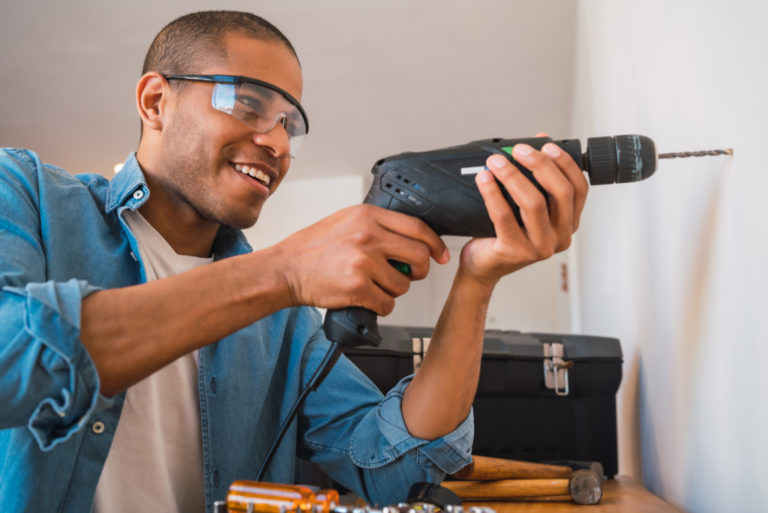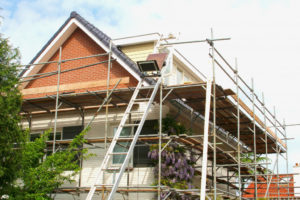There is nothing more satisfying than being a homeowner and being able to take care of everything in your home yourself. It can be a badge of honor to develop enough knowledge and skills to become a DIY homeowner. When you can fix something around the house or complete a home improvement project on your own, it can be an incredible feeling of accomplishment. And, of course, it can save you a lot of money!
However, DIY homeowners have plenty of responsibilities to shoulder. You need to take care of repairs and upkeep your home, but you also need to follow all the building codes and regulations in your area. Homeowners who take on projects without the proper permits can face severe penalties.
So, what does it take to be a responsible DIY homeowner? Here are a few things to keep in mind:
Familiarize Yourself with Regulations
You might be deep into the project, dedicating effort and resources to improve your home. Unfortunately, everything might get wasted when legal authorities prevent you from continuing.
As a DIY homeowner, it’s essential to be familiar with the permits necessary for renovation projects and follow building codes applied by the city or government. Failing to do so can lead to hefty fines and even shut down your project. So, before starting any renovation project, be sure to check with your local building department to see what permits are required.
Building codes vary from city to city, so it’s essential to be aware of the specific regulations in your area. These codes exist to ensure that all construction projects meet a certain level of safety and quality. Violating building codes can result in significant fines, not to mention many headaches.
So, before beginning any home improvement project, be sure to familiarize yourself with the applicable building codes and permits required in your area. It’s better to be safe than sorry!
Learn How to Budget
When it comes to renovating your home, it’s essential to set a budget and stick to it. Failure to do so can lead to cost overruns that spiral out of control quickly.
It’s a good idea to sit down and create a detailed budget for your renovation project. It will help you keep track of all the expenses associated with the project and make sure you stay on track. It’s also a good idea to factor in a little bit of wiggle room for unexpected expenses.
It’s also important to be realistic about what you can afford. Don’t overspend because you think the renovation will add value to your home. Remember, you want to be able to enjoy your renovated house, not just see it as an investment.
By setting a budget and sticking to it, you can ensure that your renovation project stays on track and doesn’t blow your wallet.
Create a Work Station

One of the most important things to remember as a DIY homeowner is to keep your work tools and equipment away from the rest of your family, especially from children. Having a dedicated workshed for your projects is essential to maintaining a safe and healthy environment for everyone in your home.
Keeping your work tools and equipment in a designated area will help to prevent accidents and injuries. Children are curious by nature, and if they see something that interests them, they may not think twice about picking it up or playing with it. It can lead to severe accidents and even injuries. By keeping your work tools and equipment in a separate area, you can help to prevent these types of accidents from happening.
Another reason why it’s crucial to have a dedicated workshed for your projects is that it helps keep the rest of your home clean and tidy. When you have a designated area for your projects, you can keep all of the mess and clutter contained in one spot. It can make it much easier to keep the rest of your home clean and organized.
Lastly, having a dedicated workshed for your projects also allows you to have more control over the noise level in your home. When you have your work tools and equipment in a separate area, you can minimize the amount of noise your family might have to endure. It’s imperative if you have small children or family members sensitive to noise.
Secure Supply Sources
As a DIY homeowner, it’s essential to have a reliable source for hardware and home improvement supplies. By identifying the hardware stores and establishments in your area, you can ensure access to the parts, materials, and tools you need for your DIY projects.
The last thing you want is to start a DIY project and then realize that you don’t have the necessary supplies. It can lead to frustration and wasted time and money.
It’s good to identify a few reliable hardware stores and establishments in your area. It will give you various options when it comes time to purchase supplies for your project. Appliances, however, might require you to visit their respective stores for repairs. If you still want to DIY those household items, you can find appliance parts online for a low price.
Conclusion
As a DIY homeowner, there are specific responsibilities you need to know. From understanding the building codes and permits in your area to having a dedicated workstation for your projects, these tips will help you take on any home improvement task responsibly.












